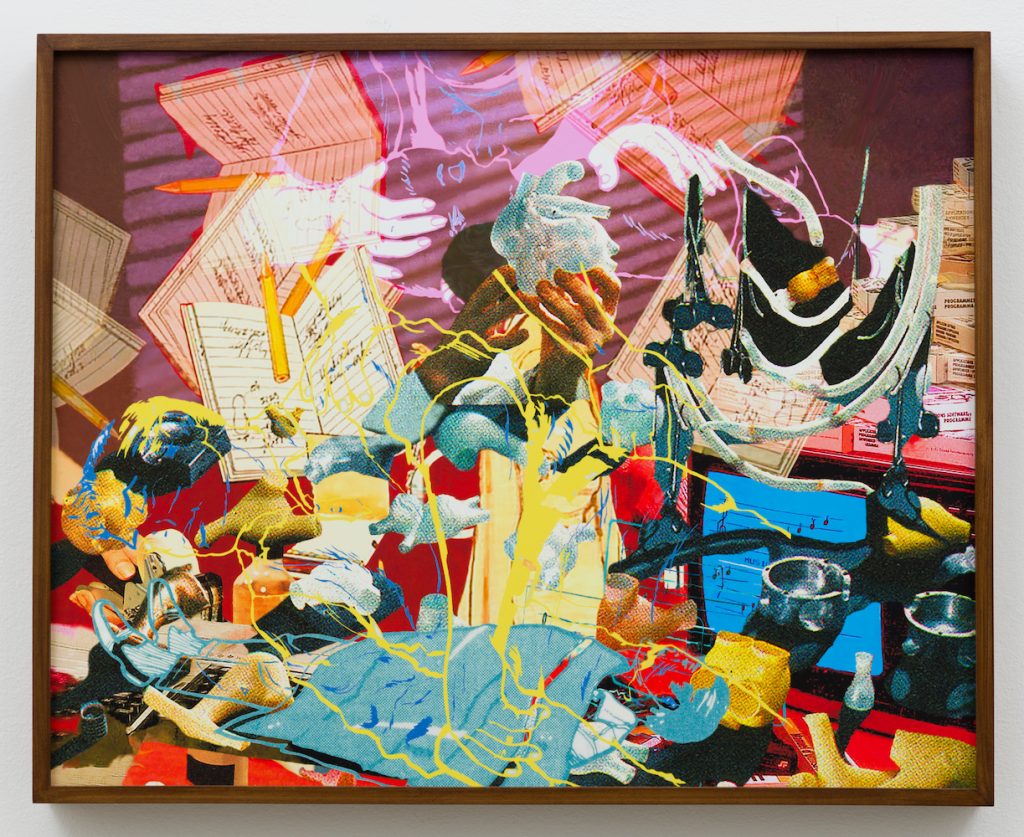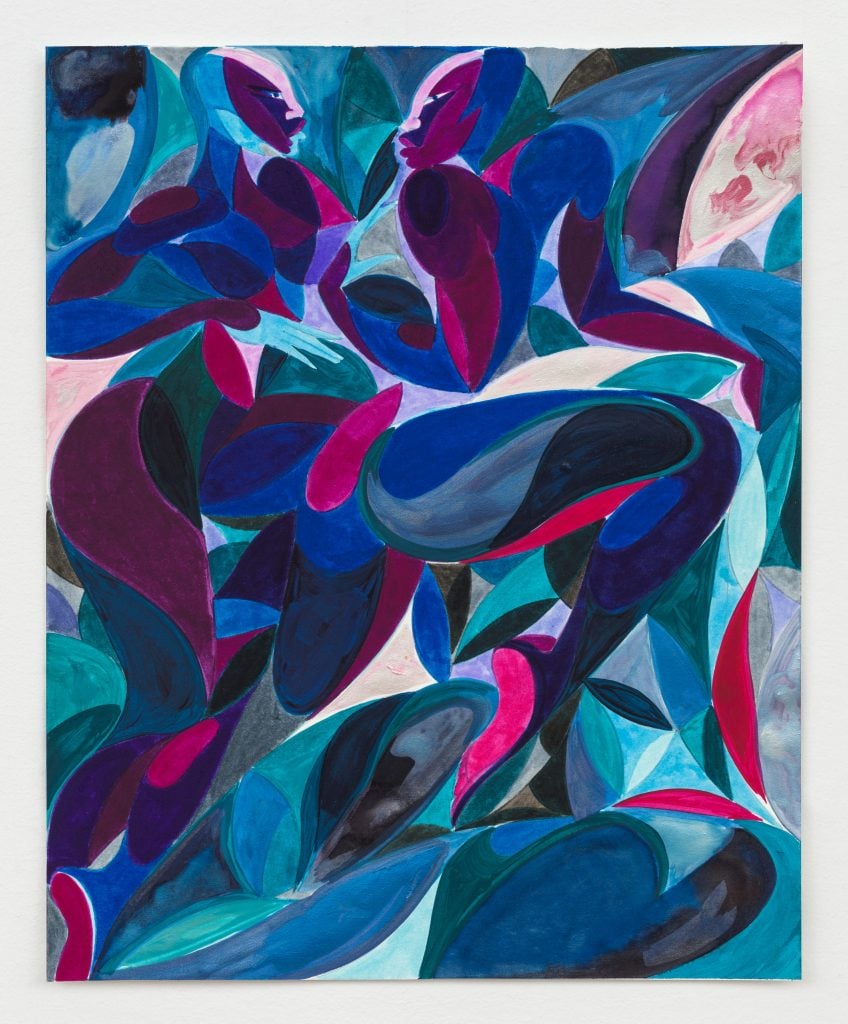Artnet News Pro
The Launch of David Zwirner’s New Click-to-Buy Online Marketplace Is Already a Success. Here’s How Much Sold on Day One
The dealer's son, Lucas Zwirner, is heading up the new site Platform.
![Platform's leadership team [L to R]: Marlene Zwirner, Lucas Zwirner, and Bettina Huang. Photo: Martyna Szczesna. Platform's leadership team [L to R]: Marlene Zwirner, Lucas Zwirner, and Bettina Huang. Photo: Martyna Szczesna.](https://news.artnet.com/app/news-upload/2021/05/2.-Marlene-Zwirner-Lucas-Zwirner-Bettina-Huang_Photo-by-Martyna-Szczesna-683x1024.jpg)
The dealer's son, Lucas Zwirner, is heading up the new site Platform.
![Platform's leadership team [L to R]: Marlene Zwirner, Lucas Zwirner, and Bettina Huang. Photo: Martyna Szczesna. Platform's leadership team [L to R]: Marlene Zwirner, Lucas Zwirner, and Bettina Huang. Photo: Martyna Szczesna.](https://news.artnet.com/app/news-upload/2021/05/2.-Marlene-Zwirner-Lucas-Zwirner-Bettina-Huang_Photo-by-Martyna-Szczesna-683x1024.jpg)
Taylor Dafoe

The pandemic forced the art world to embrace e-commerce like never before. For David Zwirner, one of the world’s largest galleries, the love affair is just beginning.
Today, the gallery launched Platform, a new click-to-buy online marketplace where other galleries will be invited to sell their wares. A curated selection of 100 new artworks will debut on the site each month, most priced between $2,500 to $50,000, and offered up on a first-come-first-served basis. Platform, meanwhile, will pocket 20 percent of each sale.
As of press time, the site had been live for seven hours and 30 percent of the month’s offerings have already sold.
The idea, said Lucas Zwirner, who is the son of David Zwirner and spearheaded the business, is to adopt the “drop” model popular in fashion, tech, and other industries wherein popular products are teased online and then released at a specified time, often to significant hype. The event-icization drives interest.
“One of the hardest things with the digital space and art is creating a sense of urgency,” Lucas Zwirner told Artnet News over Zoom. “Physical art fairs and exhibitions inevitably create urgency, because there’s an event that demarcates them. So the question becomes, how do you replicate that online?”

Jibade Khalil Huffman, Tuskegee (2019). On sale at Platform through Magenta Plains.
Platform’s roots actually stretch back to April 2020, just weeks into the countrywide shutdowns, when David Zwirner hosted a dozen smaller New York-based galleries in its own online viewing room. The initiative, called “Platform: New York,” ran for roughly a month. (The gallery launched platforms in other cities after that, too; it didn’t take a commission.) The effort was modestly successful, with the galleries netting over $1 million in sales.
Several of the dealers that participated in the 2020 trial have been reinvited for the new Platform’s inaugural drop this month, including Bridget Donahue, James Fuentes, and David Lewis Gallery. Other participants this time around include Bortolami, Jessica Silverman, and Magenta Plains.
For small-to-mid-level dealers invited to participate in a given drop, the pitch is this: Platform will help curate the works you put on view; it will showcase them on its website, which bears the trusted Zwirner name, and it will simplify the purchase and shipping process (buyers pay for shipping).
“We really see the galleries as our primary clients,” said Zwirner.

Tunji Adeniyi Jones, Midnight Jaunt (2021). On sale at Platform through Nicelle Beauchene Gallery.
The biggest carrot here for participants is the hope that the site might grant galleries an audience with millennial collectors, who are used to buying big-ticket items with the click of a mouse.
But Zwirner’s ongoing consolidation of power also poses risks to smaller galleries. Rival dealer Larry Gagosian characterized the venture as a mega gallery attempting to get even more mega. “I wouldn’t be interested in doing something like that—it’s a little bit of a wolf in sheep’s clothing,” he told the New York Times in an article announcing Platform. “My advice to smaller galleries would be to preserve your own identity and brand—even if you can’t do it at the level of a large gallery, work within your means and don’t hand over your artists and client lists to somebody who might take advantage of it at some point.”
Lucas Zwirner instead called the gallery world “very collegial,” and explained that Platform was set up as a standalone company. Though financially backed by the gallery, it will otherwise operate independently, with its own visual brand and employees. (In addition to Lucas, leadership staff includes his sister Marlene Zwirner and Bettina Huang). Per the contracts offered to galleries featured on the website, Platform can’t share client information or sales data with anyone—including David Zwirner. (Lucas will split duties between the gallery, where he heads digital content, and Platform moving forward.)
“This idea that there’s this constant predation happening among galleries large and small,” he said, “is not borne out by experience.”